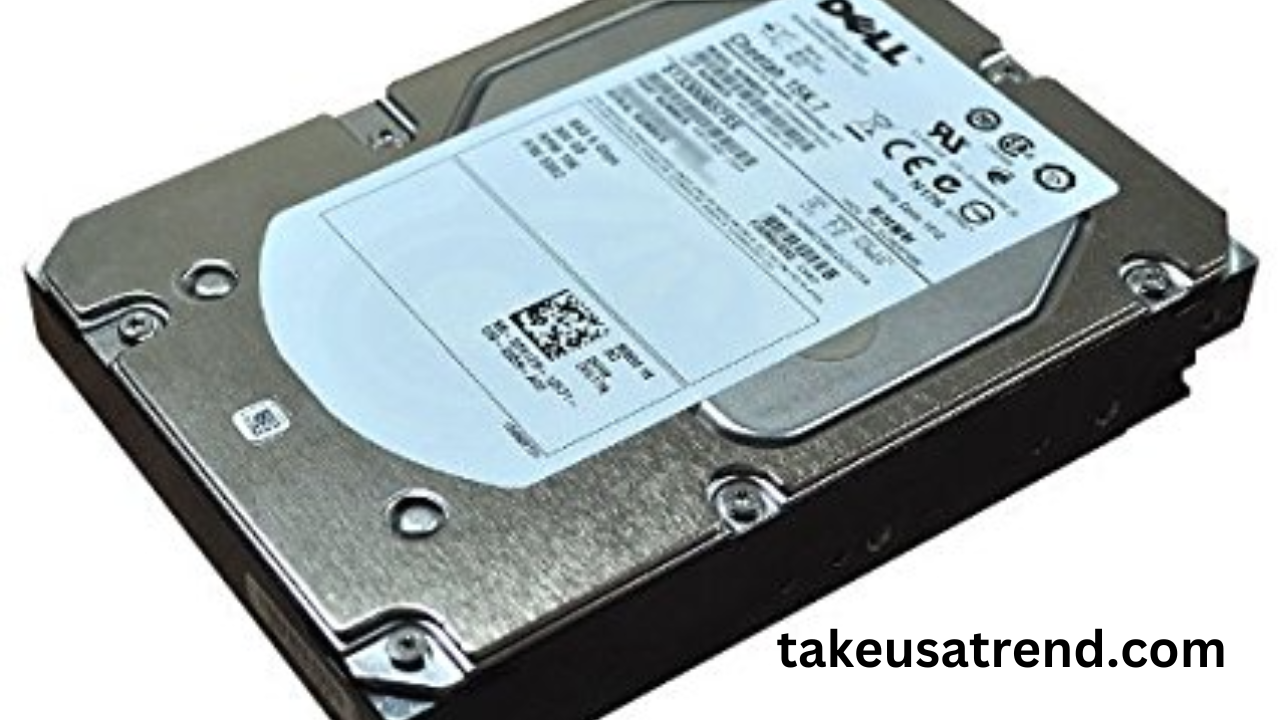

Why Upgrading to an SSD Will Boost Your l502x dell hard drive Performance
The Dell Inspiron 15 L502X is a well-regarded laptop model that was released by Dell in 2011 as part of its Inspiron 15 series. While this laptop has been around for a while, it remains a solid choice for individuals looking for a reliable and budget-friendly computer. One of the critical components of any laptop, including the l502x dell hard drive. The hard drive plays a pivotal role in the overall performance of the laptop, storing the operating system, applications, and personal data.
In this article, we will dive deep into the Dell L502X hard drive, its specifications, compatibility, and the types of hard drive upgrades that are available. We will also explore common problems associated with the hard drive and how you can enhance its performance.
l502x dell hard drive: A Quick Overview
Before we dive into the specifics of the hard drive, let’s briefly review the key features of the Dell Inspiron 15 L502X. This laptop was popular for its balance of performance and affordability, making it a favored choice among students and professionals alike.
Key Specifications of the Dell L502X:
- Display: 15.6-inch HD LED display
- Processor: Intel Core i3/i5/i7 (2nd Generation) processors
- RAM: 4GB to 8GB DDR3
- Graphics: Intel HD Graphics 3000 or NVIDIA GeForce GT 525M (in some configurations)
- Storage Options: The l502x dell hard drive capacities, typically in the 500GB to 1TB range, though some configurations might have had even larger options.
- Operating System: Windows 7 Home Premium or other editions (depending on the model)
The laptop’s hard drive is a key factor in its overall performance. While it may not be the newest model, understanding how to upgrade or troubleshoot its hard drive can give the L502X a new lease on life.
Types of Hard Drives for Dell L502X
The Dell L502X originally came with a 2.5-inch SATA hard drive, but there are different types of storage that you can choose from when upgrading. Here are the main types of hard drives you can install in the L502X:
1. Hard Disk Drive (HDD)
A Hard Disk Drive (HDD) is the traditional type of storage found in many laptops, including the L502X. The HDD operates through a mechanical arm that reads and writes data on a spinning disk.
- Capacity: HDDs typically range from 500GB to 1TB, though you may find larger models.
- Speed: They are slower compared to SSDs because of the mechanical moving parts. Their read/write speeds usually hover around 5400RPM to 7200RPM.
- Cost: HDDs tend to be cheaper per gigabyte than SSDs.
If you’re not looking to break the bank and you’re happy with the performance, an HDD is a solid option for the L502X. However, for anyone looking to boost speed, consider an upgrade to an SSD.
2. Solid-State Drive (SSD) l502x dell hard drive
A Solid-State Drive (SSD) is a more modern option, providing much faster speeds than an HDD. Instead of mechanical components, an SSD stores data on flash memory chips, which leads to quicker read and write speeds.
- Capacity: Common SSD capacities for laptops range from 250GB to 1TB.
- Speed: SSDs are significantly faster than HDDs, with speeds often exceeding 500MB/s for read and write operations, leading to faster boot times, quicker application loading, and better system responsiveness.
- Cost: SSDs are more expensive than HDDs, but the performance improvement they offer is usually worth the extra cost.
If you want to breathe new life into your L502X, upgrading to an SSD can provide a noticeable performance boost. Your laptop will boot up in seconds, programs will load almost instantaneously, and overall system responsiveness will be far superior.
3. Hybrid Drive (SSHD)
The Hybrid Drive or Solid-State Hybrid Drive (SSHD) combines elements of both HDD and SSD technology. It typically has a smaller SSD cache (e.g., 8GB to 32GB) alongside a larger mechanical l502x dell hard drive (e.g., 500GB to 1TB).
- Capacity: Hybrid drives usually offer a mix of solid-state memory (for faster performance) and hard disk space (for greater storage).
- Speed: While the hybrid drive doesn’t match the SSD in terms of speed, it offers a balance between the large storage capacity of HDDs and the faster boot times of SSDs.
- Cost: Hybrid drives are often less expensive than full SSDs but more expensive than regular HDDs.
Hybrid drives are a good middle ground for users who want more storage than an SSD offers but still want some of the speed benefits of solid-state memory.
Upgrading the Dell L502X Hard Drive
If you own a Dell L502X and are considering upgrading the hard drive, here’s a step-by-step guide on how to do it:
Tools You’ll Need:
- New hard drive (SSD or HDD)
- Phillips-head screwdriver
- External hard drive (optional for data backup)
- Anti-static wristband (optional but recommended)
Step 1: Backup Your Data
Before you begin, make sure to back up your important files to an external drive or cloud storage. This ensures that no data is lost during the upgrade process.
Step 2: Power Off the Laptop l502x dell hard drive
Turn off your Dell L502X completely and disconnect it from any power source. Remove the battery if possible to avoid any electrical issues during the process.
Previous article; Why Your hid xenon wiring harness ds23 Key Benefits and Installation Tips
Step 3: Remove the Back Panel
Using the Phillips-head screwdriver, remove the screws that secure the back panel of the laptop. Once the screws are removed, gently lift the panel off to expose the hard drive.
Step 4: Locate the Hard Drive
The hard drive is usually located near the center of the laptop’s interior. You should see a metal bracket or tray that holds the hard drive in place.
Step 5: Disconnect and Remove the Old Hard Drive
Carefully disconnect the hard drive from the laptop by gently pulling the SATA connector off the drive. Once disconnected, remove the screws or bracket securing the drive and lift it out.
Step 6: Install the New Hard Drive
Insert the new SSD or HDD into the hard drive bay and secure it with the screws or bracket. Connect the SATA cable to the new drive.
Step 7: Reassemble the Laptop
Replace the back panel and screw it back into place. Reinsert the battery (if you removed it) and power on the laptop.
Step 8: Install the Operating System
If you installed a new SSD or HDD, you will need to reinstall the operating system. You can either create a bootable USB drive with Windows or use a recovery disk if you have one. Once the OS is installed, restore your backed-up files.
Troubleshooting Dell L502X Hard Drive Issues
Despite its durability, the l502x dell hard drive may experience issues over time, particularly if it is an older model. Here are some common hard drive problems and their potential solutions:
1. Slow Performance
If your L502X has become slow, it could be due to a failing hard drive, insufficient free space, or fragmented files. Here’s what you can do:
- Upgrade to an SSD for faster performance.
- Defragment the drive (for HDD users) to optimize file storage.
- Check disk health using built-in utilities like CHKDSK or third-party tools like CrystalDiskInfo.
2. Corrupted Files
Sometimes, files can become corrupted due to a bad sector or improper shutdown. You can try repairing the files using Windows tools such as sfc /scannow or CHKDSK.
3. Hard Drive Not Detected
If your hard drive is not showing up in BIOS or Windows, it could be a connection issue, a faulty drive, or a failure to detect the drive correctly. Try the following:
- Re-seat the drive to ensure the connection is secure.
- Check BIOS settings to confirm the drive is enabled.
- If the drive is still not detected, you may need to replace it.
Improving l502x dell hard drive Performance
There are several steps you can take to optimize the performance of your L502X’s hard drive, whether you’re using an HDD or an SSD.
1. Use Disk Cleanup Tools
Windows comes with a built-in disk cleanup tool that can remove temporary files, system files, and other unnecessary data from your hard drive. This will free up valuable space and may improve performance.
2. Upgrade to an SSD
Upgrading from an HDD to an SSD is one of the most effective ways to improve overall performance. SSDs offer faster boot times, quicker file transfers, and enhanced responsiveness.
3. Increase RAM
If your laptop feels sluggish, increasing the amount of RAM can relieve some of the pressure on your hard drive. With more RAM, your system will rely less on the swap file (stored on the hard drive), leading to faster performance.
4. Disable Unnecessary Startup Programs
Too many startup programs can slow down your system’s boot time. Use Task Manager to disable non-essential programs from starting with Windows.
Conclusion
The l502x dell hard drive is an essential component of the laptop’s performance, and knowing how to manage, upgrade, or troubleshoot it can help you get the most out of your device. Whether you’re looking to upgrade to a faster SSD, replace a failing hard drive, or simply optimize your current drive, there are plenty of ways to improve your L502X’s performance.
By selecting the right hard drive and following the correct procedures for upgrading or troubleshooting, you can extend the life of your laptop and enjoy a smoother, more efficient computing experience.








